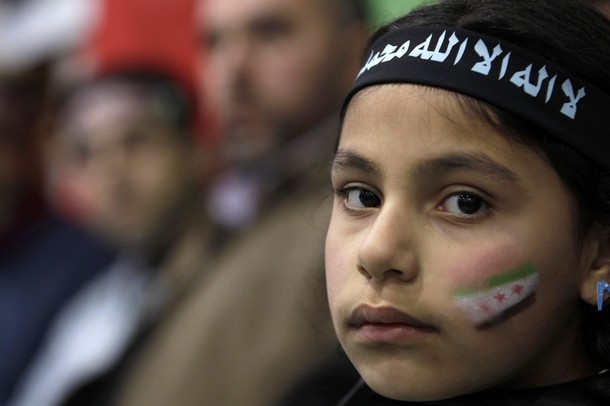
From Douglas Hamilton, Reuters: Cold-blooded sniper killings, indiscriminate shelling, surgery by flashlight, death, fear and hunger in a darkened city under the ruthless hammer of a superior force.
In its random cruelty, the conflict in Syria starts to resemble the war in Bosnia 20 years ago, when Serb, Muslim and Croat forces tore the Balkan country apart and the besieged people of Sarajevo buried thousands of dead in sports fields.
Bosnia’s carnage was broadcast globally month after month by 24-hour satellite television news then in its early days. The slaughter in the Syrian city of Homs has been playing out to the world almost hourly on mobile phone and amateur video. . . .
Intervention did come to Bosnia, but so hesitantly that the agony of its people went on for nearly 4 years, in which tens of thousands were killed and a million lost their homes.
Western powers who finally stopped the slaughter say they have no intention of going into Syria, a move that would have incalculable consequences in a volatile region.
Bosnia was a small republic of Yugoslavia, a European crisis on NATO’s doorstep. Syria is a major Arab republic with powerful friends in Russia and Iran, situated on a strategic crossroads. . . .
In Bosnia, the world watched atrocities happening as intervention came in slow motion, held up by Western reluctance to wade into what was seen as an ethnic civil war, plus Russia’s adamant credo of non-interference and long-winded diplomacy blurred by a convenient pretence that it was a fair fight.
Similar factors are at play in Syria. The vetoes of Russia and China have so far blocked any action by the United Nations Security Council, insisting on non-interference in a guerrilla uprising against a legitimate state. . . .
NATO Secretary General Anders Fogh Rasmussen says that, even with a U.N. mandate and Arab backing, he doubts the alliance would get involved. Yet as Bosnia showed, policies can change.
"We got no dog in this fight," U.S. Secretary of State James Baker famously said in 1991 after a failed mission to stop the bloody disintegration of Yugoslavia which ignited Bosnia’s war.
But when it turned into Europe’s worst conflict since World War Two, NATO did get into the fight, starting with a token 50 peacekeepers but ending with 100,000 in the country, after bombing Bosnian Serb heavy weapons to impose a peace settlement.
It took five years and over 100 United Nations Security Council resolutions to extinguish the war the United Nations had hoped would end in the summer of 1992. It ended in the winter of 1995, with more than 100,000 dead and entire cities destroyed.
But many more lives were spared because Bosnia’s atrocities posed a challenge to the power of the United States and its European NATO allies that they could not afford to flunk. . . .
Right now, the prospects of a U.N. peacekeeping force for Syria are seen as slim, since "there is no peace to keep." But there was no peace to keep in Bosnia either, in 1992.
The Washington Institute’s [Soner] Cagaptay and [Andrew] Tabler say a mission to Syria could succeed, and avoid escalation, if it heeds the lessons of Bosnia and avoids the pitfalls.
Firstly it must avoid "designating safe havens without a credible military structure to protect them." Secondly it must not "send in peacekeepers without a strong mandate for them to shoot back." Thirdly, it must "use airpower to protect the enclaves and maintain humanitarian corridors."
They speculate that it would be commanded by a Turkish general, operating from NATO headquarters. (photo: Reuters)
Image: reuters%202%2020%2012%20Galilee%20girl%20Syria.jpg
